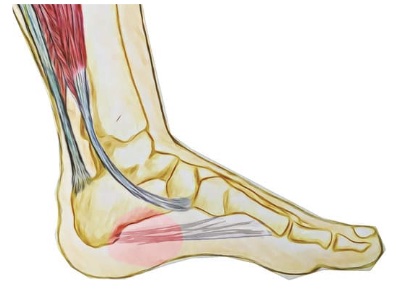Physiotherapy at Cumberland Physio Parramatta CAN help plantar fasciitis, and for many people it’s one of the most effective non-surgical treatments.
Plantar fasciitis is one of the most common causes of heel pain. It happens when the plantar fascia—a thick band of tissue that runs along the bottom of your foot from your heel to your toes—becomes irritated, inflamed, or overstressed.
Typical symptoms of Plantar Fasciitis
- Sharp or stabbing heel pain, especially with the first steps in the morning or after sitting
- Pain that improves as you move around but may return after long periods of standing or activity
- Tenderness along the arch or heel
Common causes of Plantar Fasciitis
- Overuse from running, long walks, or standing for long periods
- Tight calf muscles or Achilles tendon
- Flat feet or high arches
- Poor footwear with little arch support
- Sudden increase in physical activity
How physio helps at Cumberland Physiotherapy Parramatta:
Our Parramatta Physio Matthew West can:
- Reduce pain and inflammation using manual therapy, massage, ice/heat, or modalities like ultrasound.
- Improve flexibility by stretching the plantar fascia and calf muscles (tight calves often contribute to PF).
- Strengthen foot and lower-leg muscles to support the arch and reduce strain on the fascia.
- Correct biomechanical issues such as poor foot mechanics, overpronation, or gait problems.
- Advise on footwear and orthotics, load management, and activity modification.
- Provide taping techniques, such as low-dye taping, which can relieve stress on the plantar fascia.
Common physio treatments at Cumberland Physiotherapy Parramatta for plantar fasciitis:
- Calf and plantar fascia stretching
- Foot intrinsic muscle strengthening (e.g., towel scrunches, marble pickups)
- Manual soft-tissue therapy
- Night splints or taping
- Gait and posture assessment
When to see Matthew West, our Parramatta physio:
- Pain in the heel first thing in the morning
- Symptoms lasting more than 2–3 weeks
- Pain with walking, running, or standing
- Recurrent episodes of heel pain

